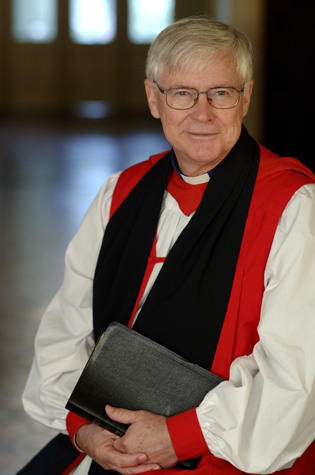Peter Jensen: Join conservative Gafcon to avoid 'long, slow slide' to changing doctrine

The former Archbishop of Sydney has urged Anglicans to support the conservative grouping Gafcon to preserve the future of the worldwide Anglican Communion.
"No one wants to see an end to the Anglican Communion," says Dr Peter Jensen, writing for Anglican Ink. "Certainly the leaders of Gafcon are clear on this point. They are not proposing to replace the Communion. They are dealing with schism, not provoking it."
He says a prophetic voice is needed.
"We need to join together to proclaim the gospel, teach the word, pray without ceasing, administer the sacraments and seek for repentance and renewal. Through this we need to love and bless each other.
He has attended both of the large Gafcon meetings, first in Jerusalem in 2008 and second in Nairobi in 2013.
"They were manifestly the works of the living God. The experience of both was the same: it was the joy of the Anglican Communion having communion. This was the reality which the institutional structures are meant to serve. As gatherings, they were clearly based on the word of God, they were marked by hope, faith and love, and they spoke with a clear voice about the Lordship of Christ."
He is writing as the Anglican Consultative Council meeting in Lusaka, Zambia draws to a close next week. Two provinces, Uganda and Nigeria, boycotted it because of the presence of the liberal US Episcopal Church, or TEC.
Jensen writes: "One of the most painful elements of the present crisis for me has been the lack of leadership in places from which one could have expected it. I can understand TEC. Her leadership make no secret of their theology or the reasons why they take the stand they do.
"But what I find most painful is the silence or prevarication of those who don't agree with the new sexual ethic, who understand that our ministry is the ministry of the word of God, but who say nothing except to distance themselves from a movement like Gafcon."
He also says that when he mixes with "the ordinary person in the pew", he finds that "they too are bewildered and dismayed by a leadership which has not given them voice and hope."
He criticises a "long slow slide" into changing the doctrine of the church to suit those who want to see a rapprochement with the culture.
He concludes: "My dream is for there to be thousands of supporters world-wide, men and women who wish to guard the truth, preach the truth and have fellowship with God's people."











